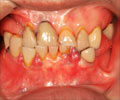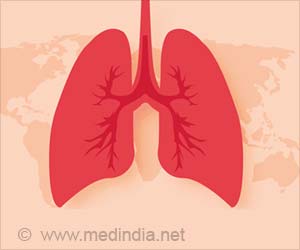Periodontitis, an oral gum disease can hasten COPD disease's progression. Treating gum disease can be a viable alternative for managing COPD.

Periodontitis aggravates COPD through the activation of T cell and M2 macrophage
Go to source).
From Oral Infection to COPD: What is the Oral-Lung Link?
Severe gum disease has been linked to the progression of chronic obstructive pulmonary disease, or COPD, but an understanding of how the connection plays out in the immune system remains unclear. Researchers from Sichuan University, in China, report that bacteria associated with gum disease promote COPD through the activation of 2 types of cells, γδ T cells and M2 macrophages, that are important to the immune system. Focusing on this mechanism might offer new, practical strategies for COPD prevention or control, said the researchers, from the West China Hospital of Stomatology at Sichuan University.‘COPD is the sixth-leading cause of death worldwide. Insights on oral gum disease link to lung health open up new COPD management strategies. #gumdisease #periodontitis #copd #lunghealth #medindia
’





“By enhancing periodontal therapy and targeting the inhibition of γδ T cells and M2 macrophages [we] may be able to help control the progression of COPD,” said microbiologist Boyu Tang, Ph.D., who led the study with microbiologist Yan Li, Ph.D. In higher-income countries, tobacco smoking is the leading cause of COPD; in low- and middle-income countries, both tobacco smoking and household air pollution are significant risk factors.
Periodontitis is a gum disease that results from the untreated buildup of plaque, a sticky film made primarily of bacteria. Over time, the plaque can harden into tartar and cause irritation and inflammation of gum tissue, and then produce deep gaps between the teeth and gums where bacteria flourish and may lead to bone loss.
Periodontitis is a chronic infectious disease, and previous studies have found that it’s a risk factor for a raft of diseases, including diabetes, hypertension, some cancers, cardiovascular disease, and COPD.
Previous studies, including some led by Li and Tang, have established that the oral bacteria Porphyromonas gingivalis plays an important role in gum disease. For the new work, Li, Tang, and their colleagues used mouse models to show how those bacteria could aggravate the progression of COPD. In one experiment, they showed that mice infected with both periodontitis and COPD had worse progression of COPD than mice infected with COPD alone.
Advertisement
Further observations using flow cytometry and immunofluorescence revealed that periodontitis promoted the expansion of the immune cells in the lung tissue. Finally, in experiments using mouse lung tissue, the group connected the dots by showing that P. gingivalis could activate the immune cells, promoting their ability to produce cytokines associated with worsening COPD.
Advertisement
“We’ll further carry out additional studies on human subjects to confirm the mechanism,” Li said. They plan to recruit patients with both conditions and offer periodontitis treatment, then compare lung function and immune cell counts before and after. “Our finding could lead to a potential new strategy for treating COPD.”
Reference:
- Periodontitis aggravates COPD through the activation of γδ T cell and M2 macrophage - (https://journals.asm.org/doi/10.1128/msystems.00572-23)













